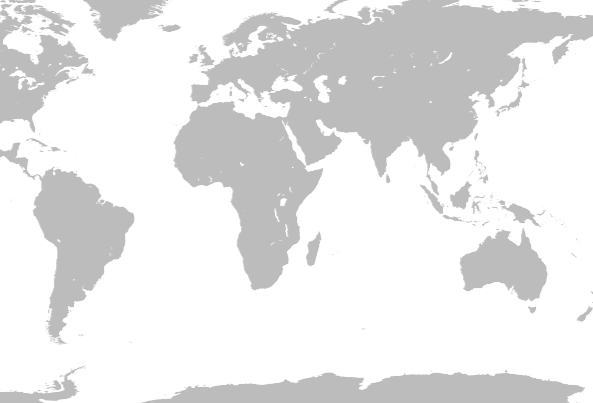
University rankings drive the Englishization of global academia
The Intercultural Communication Special Interest Group of the British Association of Applied Linguistics is hosting a seminar at Newcastle University next week devoted to “Intercultural Communication in Higher Education – principles and practices.” Given that internationalization of higher education is all the rage internationally, the seminar could not be more timely. I am one of the invited speakers and, as I cannot be there in person, have just finished recording my lecture about the “Englishization” of global higher education.
I use the term “Englishization” to refer to the spread of English as medium of instruction in institutions of higher education in non-Anglophone countries. A recent case study of English as medium of instruction in higher education in South Korea, particularly at the elite university KAIST (Korea Advanced Institute of Science and Technology), demonstrates that the pursuit of “global excellence” as expressed through a high rank in global university rankings is a key driver behind the expanding use of English as medium of instruction (Piller & Cho 2013).
University rankings are based on assessments of four broad areas: research and publications, learning environment, reputation of graduates, and internationalization. Of these four areas only ‘learning environment’ is a language-independent variable. It measures things like infrastructure and student-teacher ratio.
The fact that measurement of ‘research and publication,’ usually the most heavily-weighted criterion, is language-dependent is well-known: the most highly ranked journals (as measured by being indexed or having an impact factor) are predominantly published in Anglophone countries and, even if published elsewhere, tend to use English as their medium of publication. Reputation of graduates, too, is language-dependent as it is usually measured through surveys of the HR departments of international corporations where English is widely used.
Here I want to focus on ‘internationalization.’ While ‘internationalization’ is usually the assessment area with the lowest weighting, it is an important aspect of any institution’s strategy to improve its ranking because it is relatively easy to manipulate. Notching up points for ‘internationalization’ takes much less time than to improve research, the learning environment or the reputation of graduates. And achieving a quick jump in rankings through improved internationalization from one year to the next will have flow-on effects on the measurement of research (where reputation also plays a huge role, as evidenced by attempts to influence research reputation votes such as this one by University College Cork) and graduate reputation.
So how is an institution’s ‘internationalization’ measured? In the Korean rankings explored by Piller & Cho (2013), there were four measurements:
- The proportion of foreigners among a university’s teaching staff
- The number of international students
- The number of exchange students
- The proportion of English-medium lectures
Internationalisation is therefore both directly and indirectly language-dependent: the proportion of English-medium lectures is a direct measurement of language; measurements of foreigners among students and faculty are indirectly language-dependent as foreign faculty are more likely to lecture in English than Korean and as the presence of foreign students (even if they are almost exclusively from other non-Anglophone countries, particularly China) is – in circular logic – used as a further justification for the ‘need’ to have English as medium of instruction.
In sum, the desire to perform well on national and international university rankings pushes for English as a medium of instruction in a number of direct and indirect ways. University rankings are phenomenally influential: students base their decisions on where to seek admission on university rankings, governments base their funding decisions on university rankings, the public increasingly understand the value of academia based on university rankings. In that sense, increasing the use of English as medium of instruction is a rational strategy for a university as it has consequences for its position on university rankings. Sadly, in the rush to compete no one seems to have taken pause to reflect on the intrinsic value of the measurements that go into university rankings. Does the proportion of foreigners, for instance, really mean anything much other than, well, the proportion of foreigners?
The benefits to an individual institution of performing highly on university rankings are obvious. The costs of academic competition usually remain hidden. However, there are significant social costs attached to the Englishization of global academia. Here on Language on the Move we have recently discussed the transfer of the burden of language learning from society to the individual; increased social stratification as those who can afford private tuition in English will enjoy better access to higher education than those who cannot; and the damage done to critical inquiry if the medium is more important than the message. Cho (2012) adds educational costs as teachers may feel insecure, or lack proficiency and confidence when teaching in English or students may simply find lectures delivered in English incomprehensible.
All this raises a key question about Englishization and internationalization: What is the meaning of ‘excellence’ if it does not involve service to the common good?
![]()
Cho, J. (2012). Campus in English or campus in shock? English Today, 28 (02), 18-25 DOI: 10.1017/S026607841200020X
Piller, I., & Cho, J. (2013). Neoliberalism as language policy Language in Society, 42 (01), 23-44 DOI: 10.1017/S0047404512000887






 This work is licensed under a
This work is licensed under a
Very interesting! I have observed that prominent institutions here in the Philippines continue to internationalize to pursue global excellence. I have been in a few classes where the professor is a foreigner and half of the class is from a foreigner partner university.
Englishization = Internationalization. I understand this equation.
What I do not understand is this:
English Only + multicultralism
Sincerely yours
Khan
Great post. I’m also always curious about whose English is meant when we “internationalize”. In principle, if English is a truly global language, then it shouldn’t belong to any particular country. Yet the various metrics you’ve pointed to seem largely rooted in US or UK English norms (e.g., journals require ‘nonnative’ speakers of English to have their work checked by a ‘native’ presumably someone from the US or the UK).